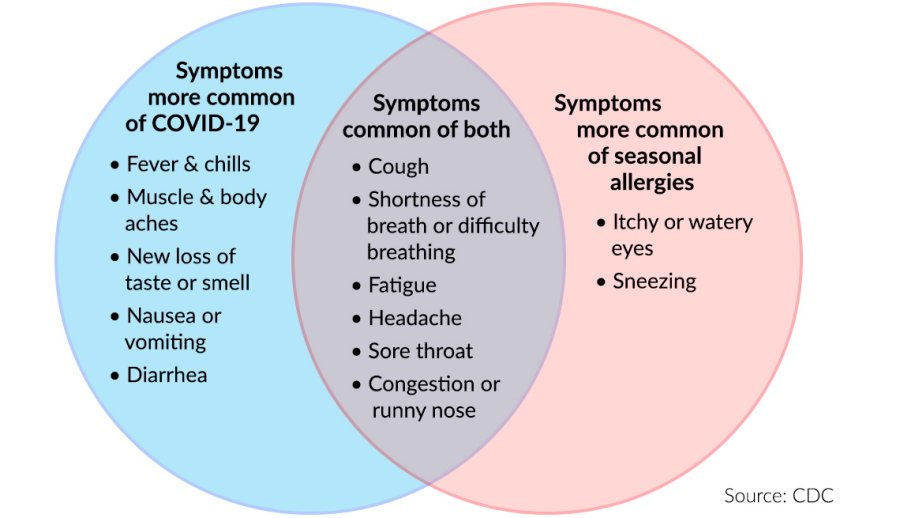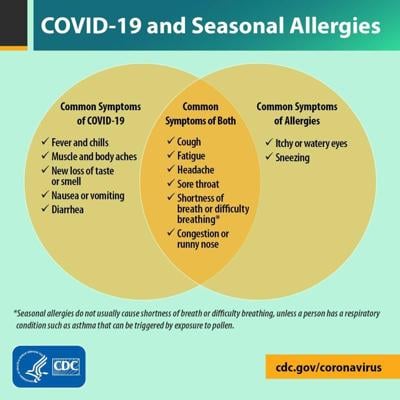
Is Allergy A Symptom Of Covid. The main warning signs of COVID-19 the disease caused by the new coronavirus are fever fatigue and a dry cough. Itchy eyes ears nose and throat scream allergies. COVID-19 symptoms are polymorphic and may include upper respiratory symptoms. It is very difficult to distinguish between the symptoms of COVID-19 influenza and a cold.

Allergies typically cause nasal symptoms such as a runny nose and sinus congestion but do not usually result in a fever as is found with coronavirus or the flu. This virus just has the. An ARIA-EAACI study group attempted to differentiate upper respiratory symptoms between the three diseases. Fever is a common symptom of COVID-19 but does not occur with allergies. Allergies never cause fevers. It is very easy to mistake one for the other.
Allergies do not cause fever but it could be a COVID-19 symptom along with these other symptoms that can appear 2-14 days after a COVID-19 exposure.
The symptoms of both allergic rhinitis or hay fever and COVID-19 are similar. Other symptoms of COVID-19 not characteristic of allergies are body aches nausea vomiting and diarrhea. Its also likely that the type of immune response most asthmatics have the allergic response protected them from severe lung damage he added. While a dry cough is common in both seasonal allergies and COVID-19 a cough related to an itch or tickle in your throat is most likely due to seasonal allergies. Other common symptoms of hay fever include itchy nose and itchy watery eyes. One way to differentiate between allergy symptoms and those of COVID-19 are that allergy symptoms are chronic meaning that symptoms show up on and off for weeks or months at a time.